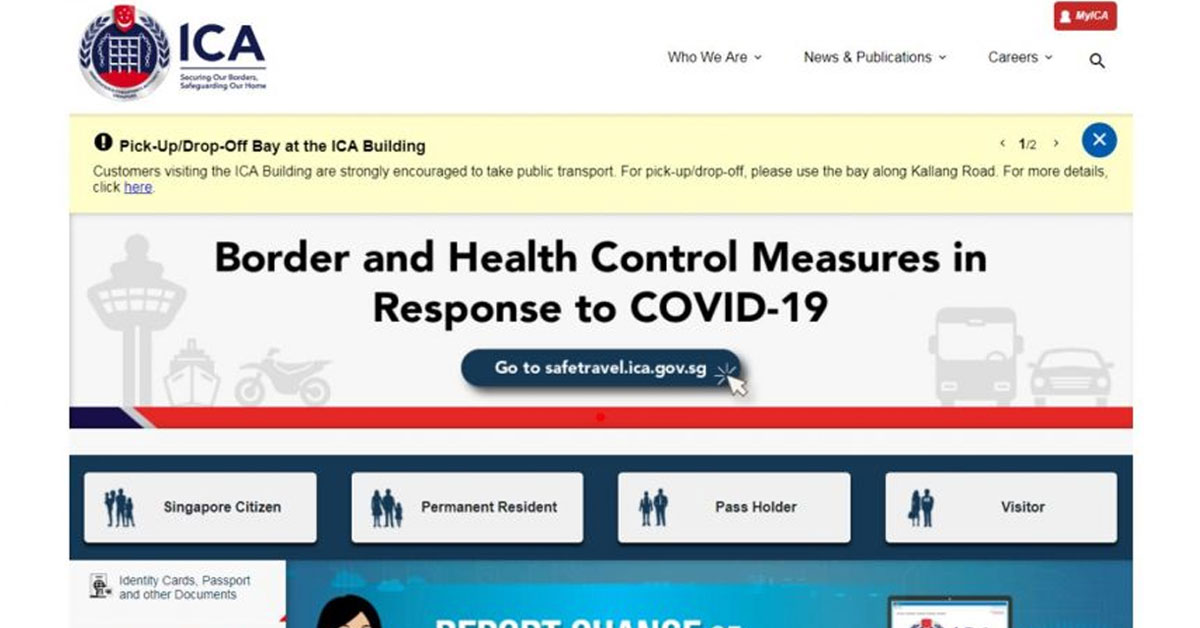It appears that phishers – individuals who attempt to secure information in an illegal manner over the Internet – are getting more and more brazen in their efforts.
According to The Straits Times, these technologically-advanced scammers attempted to “borrow” the services of a rather prominent site…
One that the lives of our passports, for better or worse, solely rely on.
ICA Files Police Report Against Fake Website That Looks Like Its Official One; No Data Compromised
Lest you’ve yet to cotton on, I’m talking about the Immigration and Checkpoints Authority.
Otherwise known as the ICA.
According to the news report, the border control agency is the latest organisation to fall prey to a phishing scam, after a duplicate site with the horrendously fishy name of ica-mom.online began making its rounds on the Internet.
The ICA has since lodged a police report.
“The ICA takes a serious view of such fake websites as they undermine public trust in our system and processes,” it said.
The organisation has also assured the public that the official website can still be accessed, and that there has been no data breach.
At the current moment, the authority is reportedly endeavouring to remove the fake website.
Other Scam Sites
As hinted at above, the ICA is far from being the first major organisation to have its “face” duplicated, so to speak.
The likes of Singapore Airlines, DBS Bank and even Netflix have all been impersonated at some point.
And though we’ll have preferred otherwise, there have been victims of such scams.
It got to a point where the Singapore Police Force had to step in, with an advisory against phishing scams in 2020.
According to the police reports lodged, the SPF is able to outline the general M.O. of phishing scams:
- Sends an email or text from a company victims trust (Netflix, Paypal, McDonald’s, SingPost, etc)
- Email or text will contain fake offers or claims to make you click into a URL (things like making payment for your parcel, verifying your account, update payment details)
- When you click on the URL, you’ll be brought to a fake website that looks like the real deal. The websites will also ask for your credit or debit card details and a One-Time Password (OTP)
- Victims only realise they’ve been duped after receiving notifications about money going out of their accounts.
To avoid getting scammed, you’re advised to:
Advertisements
- Don’t click on any URL in such emails or text messages; instead, go to your browser, type in the company’s website and check from there
- Verify the information with the official website or sources (if it’s a lucky draw, they will usually have it at the front page; if it’s to update account details, go to the official site and log in from there, they will usually give you a prompt once you’re logged in.)
- No one (other than scammers) will want your banking details and OTP; anyone who ask for it is a scammer.
- Report any fraudulent credit/debit card charges to your bank and cancel the card immediately.
Featured Image: ica-mom.online (remember, it’s a fake website)



